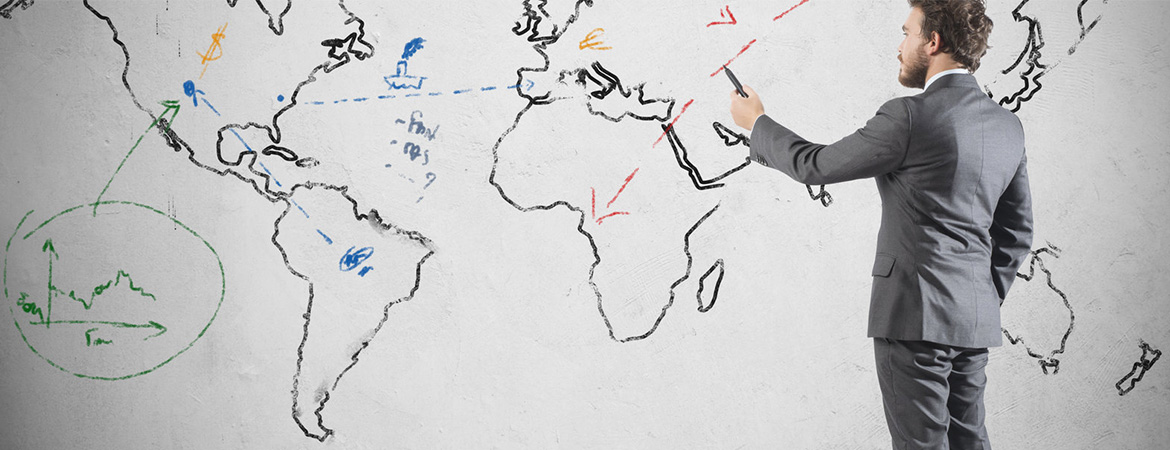The BEPS 2.0 project: shaking up the global tax landscape
With significant changes in the global tax landscape afoot, multinationals are set to face a challenging operating environment in the coming years, be it in Singapore or elsewhere.
Tasked with a mandate from the G20, the OECD leads the Base Erosion and Profit Shifting (BEPS) work to address tax challenges arising from the digitalisation of the economy, which is commonly referred to as the BEPS 2.0 project. Pillar One aims to reallocate taxing rights of residual profits of large multinationals to market jurisdictions, while Pillar Two will set a global minimum tax rate of 15%.
The impact on Singapore is two-fold: Singapore may lose tax revenue when a portion of Singapore-sourced profits of multinationals is reallocated to other countries under Pillar One; and Pillar Two will allow other countries to tax Singapore-sourced profits of large multinationals where such profits are taxed below the globally-agreed rate of 15%, effectively absorbing the benefits provided under a tax incentive.
Changes to Singapore’s economic strategy
Together with geopolitical shifts and disruptions brought by the COVID-19 pandemic, these developments could spell changes to Singapore’s economic strategy going forward.
With the Pillar One rules for reallocating profits to markets and the rise of remote work arrangements, multinationals could gravitate towards a more decentralised business model, or adopt a mixed approach where existing hubs could focus on close-to-market activities. At the same time, to vertically integrated groups, this fragmentation of labour, manufacturing and distribution activities could paradoxically require more centralisation and create demand for higher skilled talent who can strategically manage complex cross-border supply chains. To stay relevant, Singapore must review its economic strategy to capitalise on the new opportunities presented by these growing trends.
Multinationals are keen to know how Singapore will respond to the changes under the new international taxing framework, which will narrow opportunities for tax competition among countries. The Government has indicated in recent ministerial statements that it will abide by internationally agreed standards and may make adjustments to our corporate tax system to safeguard Singapore’s taxing rights, should the consensus materialise. This author surmises that the implied assumption here is that Singapore could introduce a new minimum tax regime.
The overarching objective of any prospective adjustments is to continue to ensure that tax outcomes rightfully reflect profits attributed to economic substance and value-creation activities in Singapore, explains EDB Executive Vice President Jillian Lim. Incentive programmes will remain for companies to benefit from. Taking this approach, as the Government refreshes its economic toolkit and measures to bolster Singapore’s value proposition, it is critical for Singapore to address with precision what will move global businesses in the new era.
Differentiation in a post-BEPS 2.0 world
In an increasingly fractured world with high geopolitical risks, global businesses will place a growing premium on competent and trusted governance in investment locations that can provide them with a degree of predictability in the operating environment. Singapore will have to amplify her hard-earned trust and continue to ensure business continuity, supply chain resilience, the flow of talent and long-term policy consistency. In that spirit, the Government is committed to delivering on its proven track record of minimising compliance efforts of businesses and will consult businesses through the policy and implementation process for BEPS 2.0, says IRAS Deputy Commissioner Chiam Yah Fang.
Within the BEPS 2.0 rules, it will be paramount in the tax piece of the puzzle for Singapore to enhance tax certainty and strengthen competent authority functions for resolving cross-border tax controversies. A proliferation of multilateral disputes is expected in the new global tax environment, and these attributes will be a key differentiating factor to multinationals seeking to place functions and operations in market locations.
Importantly, even without tax competition as part of the equation, Singapore has strong and differentiating economic fundamentals that will continue to attract multinationals to our shores. In particular, Singapore is able to punch above its weight on the digital front, notes Lilian Rogers from Stripe, a technology company that builds economic infrastructure for the internet. In many ways, Singapore has cultivated a “digital hinterland” that feeds into the tech and innovation ecosystem across Southeast Asia and the broader region.
Such efforts are well underway, with Singapore having recently concluded several Digital Economy Agreements (DEAs) to establish rules on digital trade and digital economy collaborations, and providing innovators with stepped-down legal and regulatory sandboxes to test new technology. Multinationals in the digital space see further opportunities for businesses in Singapore to harness the growth in connectivity and innovation enabled by the free flow of data and information across borders, and for the Government to invest in robust digital infrastructure to power high-value technology functions.
The road ahead may seem to be fraught with uncertainty, as tax administrations and businesses alike prepare to grapple with the complexities of the new international taxing rules. In the future state, businesses may find that Singapore could look somewhat different from before. Regardless, Singapore is here to play the long game and her fundamental proposition to investors remains unchanged — assurance of competent and consultative governance, a stable political and business environment, world-class infrastructure and connectivity, access to talent, and an open offer to partner with global businesses on their growth journey.







